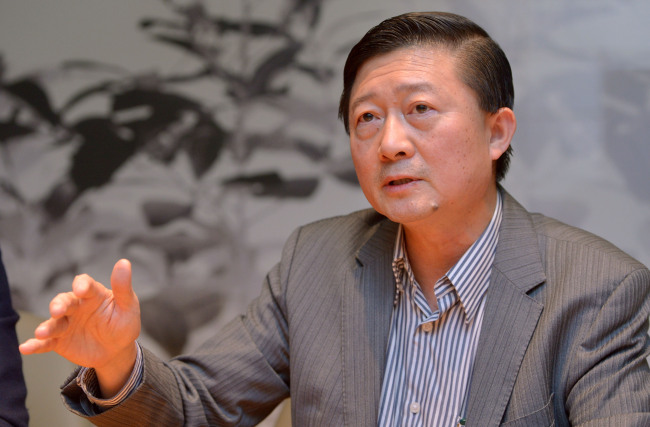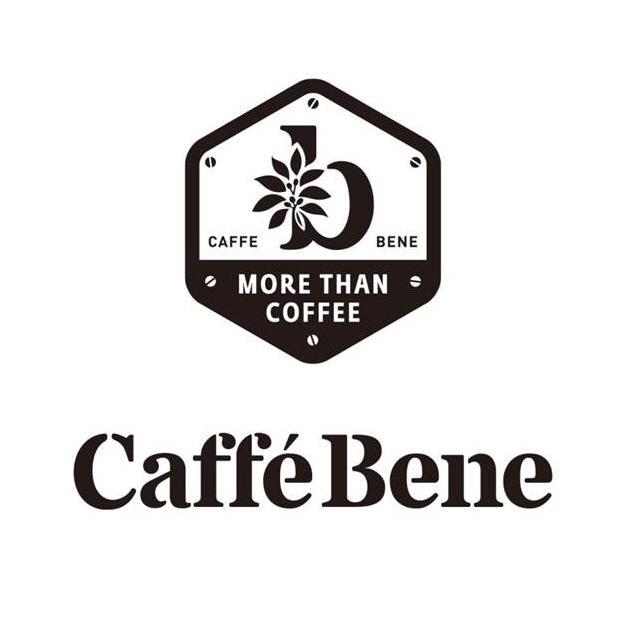[Herald Interview] Caffe Bene seeks rebound with Korean-style ‘indulgence’
Food Empire chairman says investment will help create a Korean Wave of the coffeehouse experience
By Won Ho-jungPublished : March 31, 2016 - 11:51
In mid-March, financially ailing coffee chain Caffe Bene secured a $13 million investment from an overseas partner with an interesting name: Hallyu Ventures.
The company is a joint operation between Singaporean global food chain Food Empire and the Salim Group from Indonesia. It was named by Food Empire’s executive chairman Tan Wang Cheow himself.
The company is a joint operation between Singaporean global food chain Food Empire and the Salim Group from Indonesia. It was named by Food Empire’s executive chairman Tan Wang Cheow himself.

The reason the foreign venture made an investment in Caffe Bene is because they saw an opportunity to break into Asian markets by harnessing the power of hallyu -- the Korean Wave -- through the coffeehouse experience.
“We have to create an indulgence experience for consumers,” Tan said an interview with The Korea Herald, describing the core of Caffe Bene‘s future direction as he saw it.
Tan was approached for the investment directly by newly appointed Caffe Bene CEO Choi Seung-woo, whom he had met in a previous business endeavor. Choi had been tasked with turning around Caffe Bene’s huge losses and bringing in new funds.
Tan said after looking over Caffe Bene’s business model, he was intrigued by the possibilities.
“(The cafe) is a very interesting platform,” Tan said. “We believed that this platform had a lot of opportunities to create the Korean Wave outside of Korea. But first, we have to get Korea right.”
According to the chairman, the first step would be to improve consumer experience and loyalty within the 850 Caffe Bene stores within Korea. His ideas involved launching new promotional partnerships and loyalty programs, particularly those that utilized digital technology and social media.
“We need to excite everybody. It’s the same as TV dramas,” he said with a laugh.
“Korean dramas are so dramatic. It‘s the same with cafes. We have to bring the drama. When we can do that, consumers will feel confident and comfortable with us, and come to the stores.”
Tan, whose wife and children are fans of Korean TV dramas, said that the reach of hallyu was visible whenever he traveled abroad. He spoke at length about how he had trouble finding a bellhop at an Iraqi hotel because everyone was watching a Korean movie on a small black-and-white TV, and how a university in his native Singapore had created a degree in hallyu studies.
Tan’s vision of using hallyu in brand marketing strikes a similar chord to the star marketing strategy that Caffe Bene used in its early days. In 2009, the chain became the first coffeehouse franchise to center its marketing strategy on star appeal. It entered into a strategic partnership with entertainment management agency Sidus HQ, making hallyu stars like actress Han Ye-seul the face of the brand.
“You can see this Korean following,” he said. “It‘s important for us to tap into that.”
Food Empire CEO Sudeep Nair said that now was an optimal time to begin taking the Korean coffeehouse experience abroad. According to him, the roasted ground coffee market was growing in previously untapped markets like Russia and former Soviet Union countries, where Food Empire holds a majority market share in instant coffee.
“What’s important is out-of-home consumption, experiences like what Caffe Bene offers,” Nair said. “Going out of the house to a cafe, having coffee, indulging. This is a sector that grows in leaps and bounds, particularly once the instant coffee market is mature, which is the situation now.”
“We want Caffe Bene to be the first and foremost to spread this hallyu around the world,” Tan said.
The idea of creating a space for indulgence aligns with the plan that Caffe Bene CEO Choi spelled out for media at a press conference Monday.
Saying that Caffe Bene will become a brand that “competes in the premium market,” Choi said that it will be important “not to compete by lowering prices, but by increasing the value of space.” Choi also said that the chain will be getting back to basics, focusing on providing quality coffee for its customers instead of diversifying too quickly.

Reflecting this goal, Caffe Bene has redesigned its logo in classic colors of burgundy and black with a coffee tree at its center, along with the slogan “More than Coffee.”
With this idea, he set an ambitious goal of hitting over 113 billion won ($98.8 million) in domestic sales, with operating profits of over 10 percent -- a high goal, considering the chain has been in the red for the past two years.
By Won Ho-jung (hjwon@heraldcorp.com)









![[Hello India] Hyundai Motor vows to boost 'clean mobility' in India](http://res.heraldm.com/phpwas/restmb_idxmake.php?idx=644&simg=/content/image/2024/04/25/20240425050672_0.jpg&u=)








